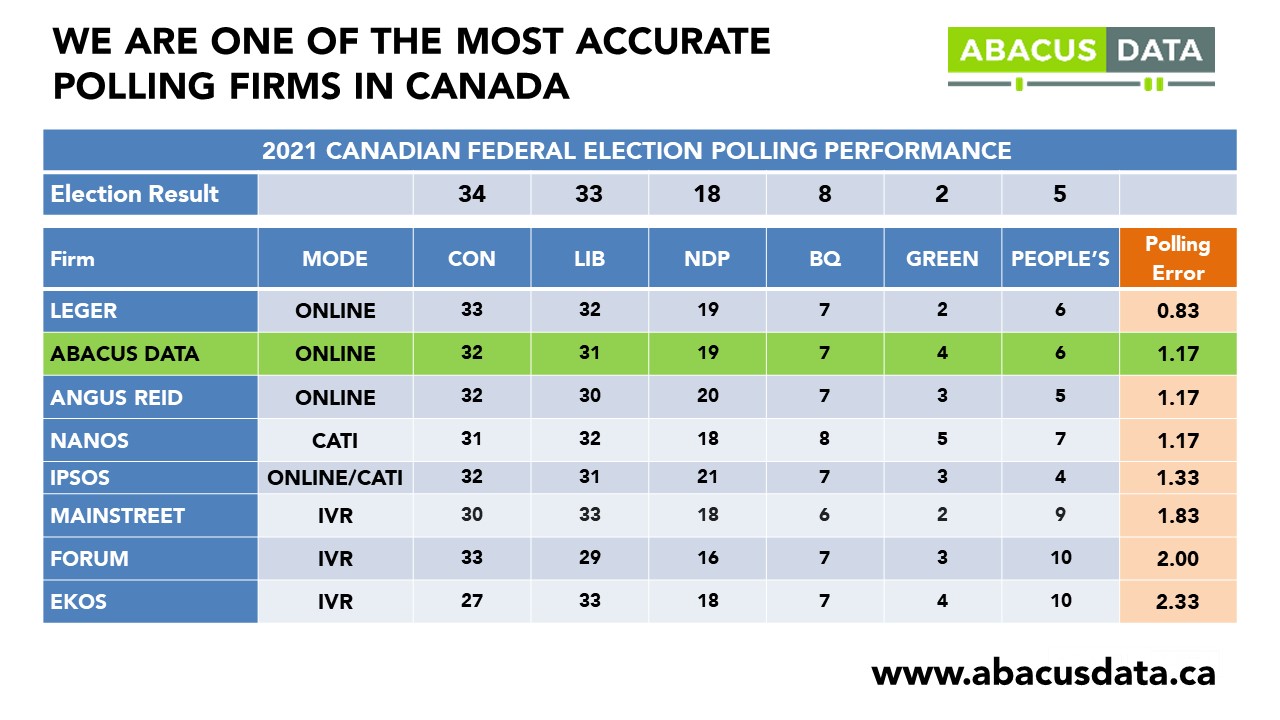The Moral Compass of Canadians in the Shadow of a Big Decision on Roe v. Wade in the US
In the coming weeks, the US Supreme Court is set to make a decision on abortion that could seriously impact abortion rights. This has brought conversations about abortion, and the morality of limiting access to the forefront of our conversations here in Canada too.
Back in 2016, we were curious to see how the views of Canadians compared to our neighbours in the south, comparing our moral compass to theirs on a number of topics. With the topic of abortion heating up in the media and set to be in the news in the coming weeks we thought it was time to re-field these questions to see how moral compasses compare today.
Here’s what we found:
- Opinions on the following topics are similar: birth control, (91% in Canada say it’s morally acceptable, 92% in the US), divorce (83% in Canada, 81% in the US), gambling (71% in both countries), the death penalty (51% in both countries) and pornography (46% in both countries).
- Canadians are more likely to say the following are morally acceptable: sex between an unmarried man and woman (83% in Canada say it’s morally acceptable, 76% in the US), having a baby outside of marriage (78% in Canada, 70% in the US), gay or lesbian relations (75% in Canada, 71% in the US)
- And finally, on abortion, Canadians are 18-points more likely to say that abortion is morally acceptable than Americans (52% vs 70%), the biggest gap between the two countries.
Back in 2016 Americans were even less receptive to the idea of abortion being morally acceptable. Back then the number was 43%. But while impressions are on the rise, the morality surrounding the abortion conversation still looks very different in these two countries.
Looking back to 2016 our own moral compass has seen some interesting shifts as well.
- Only one item, ‘smoking marijuana for recreational purposes’ is now more morally acceptable than it was in 2016, up 6-points from 65 to 71%.
- Sex between an unmarried man and woman, and divorce both saw a slight downturn from 86% to 83% morally acceptable.
- Having a baby outside of marriage dropped from 84% to 78% morally acceptable.
- Gay or lesbian relations dropped from 81% to 75% morally acceptable.
- The death penalty dropped from 59% morally acceptable to 51% morally acceptable.
- And finally, pornography dropped from 49% morally acceptable to 46%.
Views on abortion have not shifted much since 2016 in Canada.
Generally speaking, Canadian women are a lot more likely to believe that the items tested to be morally acceptable including:
- Birth control (94% women vs 88% men)
- Divorce (87% women vs 79% men)
- Having a baby outside of marriage (81% women vs 74% men)
- Gay and lesbian relations (78% women vs 72% men)
- Gambling (73% women vs 70% men)
- Abortion (72% women vs 67% men)
- Smoking marijuana for recreational purposes (73% women vs 69% men)
There are only two items that men deem more morally acceptable than women: the death penalty (55% men vs 48% women) and pornography (57% vs 35%).
We also looked at opinions based on federal vote. For most items, Conservative voters are the least likely to say they are morally acceptable, Liberal voters in the middle, and NDP voters most likely to say the topic is morally acceptable.
Some examples include:
- 91% of NDP voters believe sex between an unmarried man and woman is morally acceptable compared to 83% of Liberal voters and 77% of Conservative voters.
- 86% of NDP voters believe gay or lesbian relations is morally acceptable compared to 79% of Liberal voters and 62% of Conservative voters.
- 80% of NDP voters believe smoking marijuana for recreational purposes is morally acceptable compared to 74% of Liberal voters and 62% of Conservative voters.
This pattern is flipped only when looking at the death penalty where 59% of Conservative voters say this is morally acceptable, 52% of NDP voters and 46% of Liberal voters, and pornography where NDP voters are most likely to say it’s morally acceptable (51%), followed by Liberal voters (48%) and finally Conservative voters.
Views on the morality of abortion are lower among Conservative voters (60%) compared to voters of the other two main parties, but they are still more likely to believe abortion is morally acceptable when compared to the average American.
We also looked at differences between age groups and found quite a few interesting findings here as well.
Younger Canadians (18-29) are most likely to believe the following are morally acceptable:
- Sex between an unmarried man and woman (88%)
- Gay or lesbian relations (82%)
- Abortion (75%)
- Smoking marijuana for recreational purposes (83%)
Older Canadians (those 60+) are most likely to believe in the morality of birth control (quite an interesting finding, especially since this number is 83% among 18-29-year-olds), and having a baby outside of marriage (80%).
THE UPSHOT
 According to Oksana Kishchuk: As we await the US Supreme Court decision that could decide the future of abortion rights in the US, Canadians generally have more liberal views on many social and moral issues than our neighbours to the south. And while the margins of morality between Canadians and Americans have narrowed on several issues, this is more related to shifts in the US rather than adjustments of our own compass in Canada.
According to Oksana Kishchuk: As we await the US Supreme Court decision that could decide the future of abortion rights in the US, Canadians generally have more liberal views on many social and moral issues than our neighbours to the south. And while the margins of morality between Canadians and Americans have narrowed on several issues, this is more related to shifts in the US rather than adjustments of our own compass in Canada.
What’s more interesting are the slow but notable downshifts in morality within our own borders over the last six years. Perceiving several topics as less moral may be related to our growing distrust towards institutions, and bodies of responsibility and authority.
As millions of Canadians distrust facts (as noted in our other releases here) and express a growing distrust towards those around them, we may also be looking introspectively and (just slightly) alter their inner moral compass as well.
Methodology
This survey was conducted with 1,000 Canadian adults from May 9th to 10th. The margin of error for a comparable probability-based random sample of the same size is +/- 3.1%, 19 times out of 20.
The survey was conducted using a random sample of panelists invited to complete the survey from a set of partner panels based on the Lucid exchange platform. These partners are double opt-in survey panels, blended to manage out potential skews in the data from a single source.
The data was weighted according to census data to ensure that the sample matched Canada’s population according to age, gender, educational attainment, and region.
This poll was conducted and paid for by Abacus Data.
Abacus Data follows the CRIC Public Opinion Research Standards and Disclosure Requirements that can be found here: https://canadianresearchinsightscouncil.ca/standards/
ABOUT ABACUS DATA
We are the only research and strategy firm that helps organizations respond to the disruptive risks and opportunities in a world where demographics and technology are changing more quickly than ever.
We are an innovative, fast-growing public opinion and marketing research consultancy. We use the latest technology, sound science, and deep experience to generate top-flight research-based advice to our clients. We offer global research capacity with a strong focus on customer service, attention to detail, and exceptional value.
We were one of the most accurate pollsters conducting research during the 2021 Canadian election following up on our outstanding record in 2019.
Contact us with any questions.
Find out more about how we can help your organization by downloading our corporate profile and service offering.





